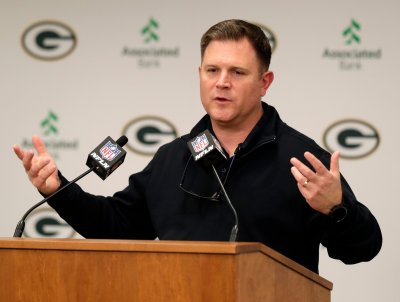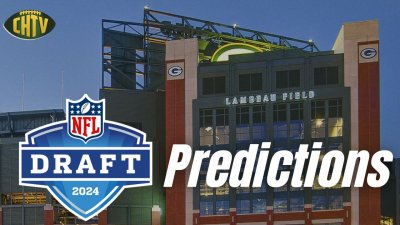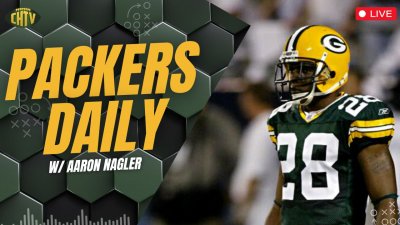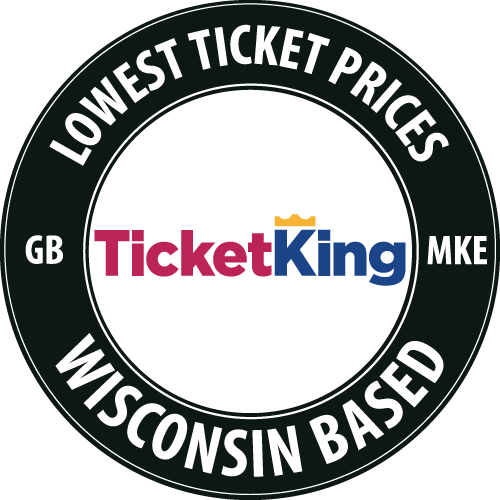Not Getting The Credit He Deserves: Russ Ball
The Packers used several creative book-keeping techniques to acquire and keep the talent needed to build a Super Bowl-winning team.
This is the first of a two-part series examining the good news and the bad news from a football operations standpoint. Today, we look at how the Packers front office heavily contributed to the Super Bowl XLV victory. Tomorrow, some salary cap related pains may lie ahead for the Packers.
I was worried when former Packers vice president of football administration/player finance Andrew Brandt left his post with the Packers to pursue other ventures in 2008.
Today you most likely know the prolific Brandt as ESPN's NFL business analyst. He's also one of the founders and writers at the National Football Post, worked in the Philadelphia Eagles front office and teaches at the University of Pennsylvania.
Personally, I respected Brandt for helping the Packers be contenders in professional sports' smallest market, bringing to light the Packers' current "accountability and availability" philosophy that makes so much sense, and seemingly learning from––like most of us––the pitfalls of free agency such as the Joe Johnson signing.
The Packers hired Russ Ball to replace Brandt to negotiate player contracts and manage the salary cap. Not that I had anything against Ball, but I was worried he might not be in the same ballpark of an Andrew Brandt.
What's happened since that time is that the Packers won the Super Bowl with Ball, something they weren't been able to do with Brandt. And that's not to say Ball was solely responsible for the Super Bowl victory and Brandt was holding them back. After all, Brandt negotiated many contracts of the players the Packers had on their Super Bowl-winning team.
Ball, however, has done a masterful job since his arrival in Green Bay, becoming an underrated reason the Packers were able to put together the collection of talent that allowed them to win the "Big Game" back in February.
From negotiating contracts and extensions to managing life with and without a salary cap––as was the case in the "Final League Year" of the now expired Collective Bargaining Agreement––Ball deserves his due.
A couple of things deserve particular attention, the first being the payroll of the Packers in 2010, believed to be among the top in the entire NFL. Let that sink in for a moment.
"According to my figures, they had a payroll, including guys they cut during the season who were there for a couple weeks and then were let go, I had them at about $155 million," said Bryan McIntyre, formerly a writer here at Cheesehead TV's Other 31 and currently at Football Outsiders.
In my estimation, because of the new, complicated and unprecedented financial history the NFL was making last year that included lack of a salary cap or floor, there wasn't as much public attention to team payrolls as there typically would have been. While many teams were making slashing player salaries (like the Carolina Panthers) others were exceeding the limit previously held in check by the salary cap.
Here were the Packers in 2010, the smallest and only publicly-owned team in all of football, having a payroll just behind the deep-pocketed Daniel Snyder and Jerry Jones-owned teams (Redskins and Cowboys) but probably ahead of almost every other team in the NFL. It's very, very likely that the many "owners" of the Packers have no clue how much the Packers paid in player salaries last season.
"[Their payroll was] top five [in the NFL]," said McIntyre. "They were definitely below Dallas. Dallas and Washington both had over $170 million. Washington really, more so than anyone."
No doubt about it, if the cost allowed the Packers to win a Super Bowl, few are going to argue. But how Green Bay got to that point is worth further examination.
The reason it was so high? The Packers recognized there's was a decent chance that the amount of time spent without a salary cap might only be temporary. They were able to keep more talent in Green Bay by offering competitive salaries that they may not have been able to otherwise.
Take for example three players signed to new deals last offseason whose contracts were front-loaded. Safety Nick Collins, tackle Chad Clifton and defensive lineman Ryan Pickett––all of them heavy contributors to last season's Super Bowl-winning team––all agreed to higher salaries in 2010 with decreasing pay going forward.
"Last year their cap numbers combined were about $27 million, $26.8 was the number I got," said McIntyre. "Next year, those three guys combined are only about $15 million."
Then take into account the three players the Packers signed to contract extensions at mid-season: cornerback Tramon Williams, linebacker Desmond Bishop and long snapper Brett Goode.
By extending their contracts before the NFL's imposed deadline, they were––again––able to apply more money to 2010's uncapped season with less money in future years.
"Between the Bishop extension, the Tramon Williams extension, they way they structured the Nick Collins, Chad Clifton, and Ryan Pickett extensions, they sunk a lot of money in 2010," said McIntyre.
They were also able to sign a few other players to either new contracts or extensions prior to 2010 that while they weren't front-loaded, it can be argued that it made them happy campers knowing they were being fairly compensated football players. Guys in this category include cornerback Charles Woodson, wide receiver Donald Driver and tackle Mark Tauscher.
The Packers also took advantage of the rules pushing back unrestricted free agency after four years of service in the NFL to six. They weren't unique in that regard––almost every other team fell in the same category––but they were able to keep big-time contributors like guard Daryn Colledge and fullback John Kuhn under their control for one more season than they would have perhaps otherwise.
While it was the players who ultimately got the job done on the field, the acquisition of players and the ability to keep them happy where it perhaps counts the most––their wallets––can't be underestimated. For that, the Packers can thank Russ Ball.
As has been my muse lately, the idea for this article spawned from another one that will be appearing in the upcoming Maple Street Press 2011 Packers Annual later this summer. I wrote an article about Ball's immediate supervisor, Ted Thompson, his ability to acquire and evaluate talent, as well as more on the Packers' creative book-keeping techniques. Look for it around what would normally be the start of training camp.
Brian Carriveau is the editor of the Maple Street Press Packers Annual. To contact Brian, email [email protected].













Comments (10)
May 25, 2011 at 01:15 pm
Nice read Brian. It will be interesting to watch what the Packers strategy will be moving forward. It appears they are staying right on top of any adaptations they need to make to be competitive long term.
May 25, 2011 at 01:21 pm
Good article and definitely a solid point.
I wonder how much of that high payroll is also due the the extraordinary parade of signings GB had to execute to make up for the guys on IR. I would imagine not too much because they were mainly minimum guys picked up though.
May 25, 2011 at 01:22 pm
With the many players on IR, and the need to sign replacements, I imagine this pushed salary numbers high as well. I would expect that players on IR salaries count towards the salary cap (in normal times). What would happen in a capped year with so many injuries and a need to sign a great number of un-planned players?
May 25, 2011 at 03:24 pm
Makes me wonder what their committed number looks like for 2011. Sooner or later a cap number will come into place. It sounds like they were so smart about it that they will be o.k. and not have to cut players. But if you know what the projected number for the Packers and others is for 2011, I'd be curious to see it. Middle of the pack, no worries. If they are still top 5 in spending, it might impact personnel decisions this year, assuming a new cap is put in place.
Brian Carriveau
May 25, 2011 at 03:25 pm
That's tomorrow's article.
May 25, 2011 at 05:53 pm
Drat, I played right into your hands spaceghost!
May 25, 2011 at 04:53 pm
That was a great article, Brian, but I believe you left another reason the Packers had one of the most expensive payroll in football, and that's because they had the largest roster in football, when you include all the IR players.
If not the biggest roster, top 5 certainly.
Brian Carriveau
May 25, 2011 at 05:00 pm
Certainly they add to the total, although the contracts signed by mid-season replacements like Diyral Briggs, Erik Walden and Matt Wilhelm don't compare to the multi-million dollar ones signed by some of the bigger name players on the team.
May 27, 2011 at 04:06 pm
Who's not giving him the credit he deserves?
Brian Carriveau
May 31, 2011 at 10:45 am
Anyone. I haven't seen a single mention in the media or otherwise praising the job Russ Ball has done. That's not to say they're not out there, but I haven't seen it.